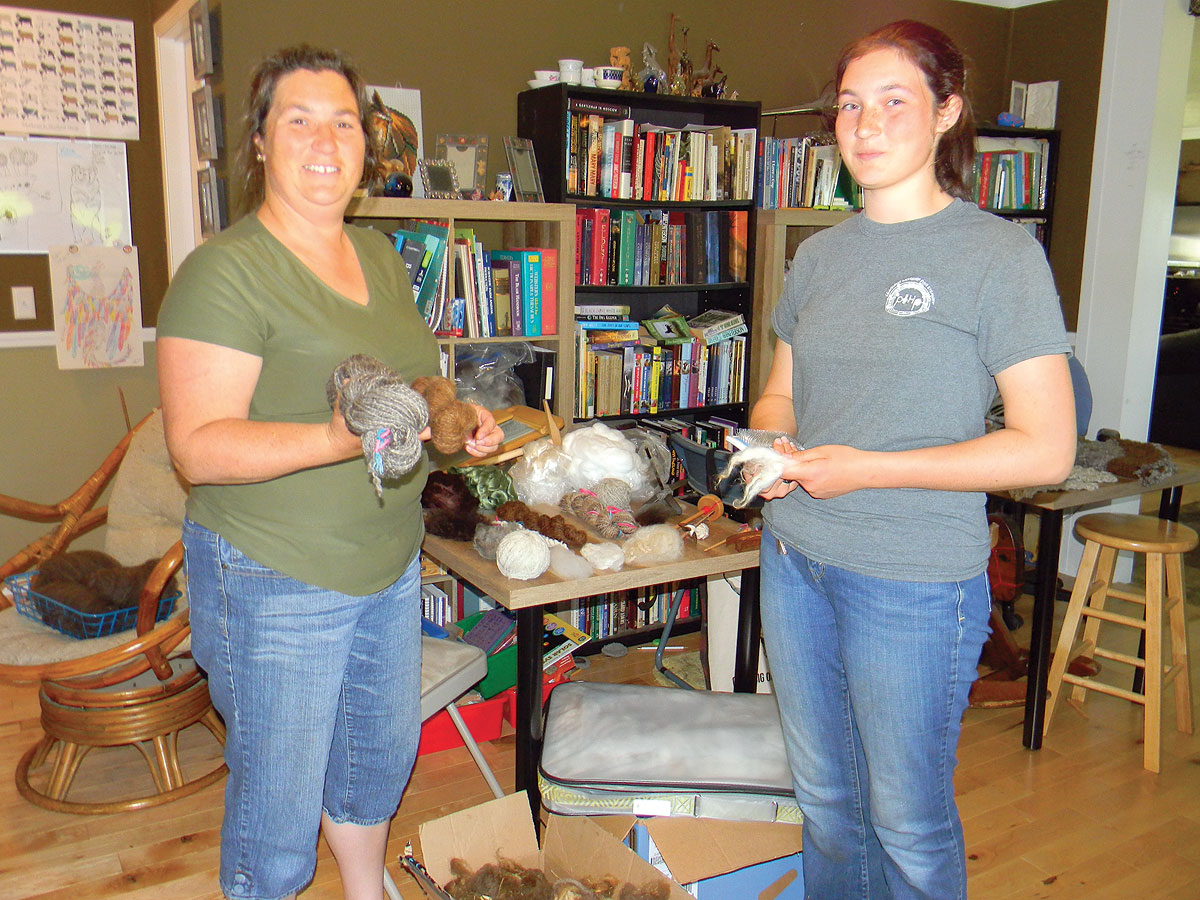Registered Limousin cattle fit the bill for Benny and Marge Reed, who both work off their Douglas County farm. Marge explained, “We had to have a breed of cattle that would be easy to take care of and that you didn’t have to be around all the time and worry about having to pull calves.”
Following their marriage in 1980, the couple lived in Mtn. Grove, Mo., for a while and eventually took over Benny’s father’s herd of mixed cattle. In 1989 Benny and Marge took the opportunity to purchase and move to a home just down the road from where Benny was born and raised. After experimenting unsuccessfully with artificial insemination from another breed, Benny happened to look at a Limousin publication while waiting for an appointment. “He started looking at it and kind of liked what he saw,” said Marge.
Some of the Limousin traits that caught Benny’s eye were small birth weight (averaging 70 to 75 pounds) and good growth patterns. He has also found that the meat from the Limousin is a little lower in cholesterol than some of the British breeds.
Benny and Marge have been pleased with their decision. “We have very little calving problems, thank goodness,” said Benny. “It has to be that way.”
With Benny working in Springfield, Mo., and Marge working in Houston, Mo., there is little daylight time for anything but basic feeding chores. Marge explained, “In the wintertime, everything is done after dark. In the summer, it’s not so bad because you have longer daylight hours. In the winter, they just get fed in the evening. We don’t have time to do anything in the morning. Our bulls are fed in the evening and all the cows are fed hay in the evening. Sometimes on the weekends Benny puts out enough hay to last a day or two, so that he doesn’t have to do it every day. You feed the bulls every day, but you don’t necessarily have to feed hay every day.”
After making the choice to go with Limousins, the Reeds purchased their first registered Limousin bull from a source in Lebanon, Mo. Subsequent breeding stock has been purchased from registered Limousin sales. They believe the added value of a registered animal offsets the cost of registration and the paperwork involved in the process. They are members of both the North American Limousin Foundation and the Missouri Limousin Breeders Association.
The Reed herd consists of both red and black Limousins. Although their personal preference is red, their breeding is driven by the demands of the market, which has recently been for black. Their first black bull was a homozygous black, and every calf he sired was black. “At the time that was unique to me. I knew what homozygous meant, but it just didn’t sink that every calf would be black,” said Marge. “That first year we bred him to 23 red cows and we came up with 23 black calves. I figured there might be one or two red ones, but they were all black.” The herd has since “evened out” between black and red.
Except for occasional culls that are taken to the sale barn, the Reeds sell all their cattle by private treaty. Marge said, “We started out just selling bulls and keeping all our heifers for replacement heifers. Then we were getting so many calls from people who wanted heifers, that for two or three years in a row, we ended up selling every heifer that we had and we didn’t get to keep any.”
“A lot of our bull buyers are repeat buyers. They know what they’re getting,” added Benny. “I have them all fertility checked before I sell them. They’re ready to go. We know that they start out ready to go when they leave here.”






